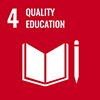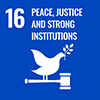On Wednesday, Oct. 8, Thompson Rivers University (TRU) Law students had the opportunity to hear from one of British Columbia’s leaders in Crown-Indigenous relations, as B.C. Treaty Commissioner George Abbott delivered an in-depth presentation to TRU Law’s Truth and Rebuilding Canadian-Indigenous Legal Relations class.
Abbott spoke about his new book, Unceded: Understanding British Columbia’s Colonial Past and Why it Matters Now, as well as the evolving landscape of treaty negotiations in B.C. and the complex task of reconciling Aboriginal title with Crown sovereignty.

B.C. Treaty Commissioner George Abbott (Photo by Ramir Sioson)
His presentation traced the historical and political developments that have shaped modern treaty processes, while emphasizing the importance of identifying and working with the proper title-holding groups in negotiations.
For many students, Abbott’s presentation provided valuable context for understanding B.C.’s colonial history and how the principles of reconciliation and recognition are put into practice within the province’s treaty negotiation process.
“Really insightful,” said law student Henry Stagg-Tanner. “Mr. Abbott’s transparency on critical issues, including identifying the proper title-holding group, was very informative. It helped us appreciate the real-world challenges that come with implementing legal principles around title and rights.”
“George Abbott’s talk was thought-provoking and insightful about a relevant issue in a quickly changing legal landscape” said third-year law student Jessica Murphy.
Abbott also spoke candidly about the barriers that continue to slow treaty progress, including overlapping territorial claims, differing community governance structures and the need for sustained political commitment from all levels of government. He underscored the importance of trust-building and long-term relationship development.

Pictured above: TRU Law students and faculty with B.C. Treaty Commissioner George Abbott
The session was part of TRU Law’s broader commitment to advancing reconciliation. The Truth and Rebuilding Canadian-Indigenous Legal Relations course encourages students to critically engage with Canada’s colonial legal legacy and to explore how future legal practitioners can contribute to rebuilding relationships between Indigenous and non-Indigenous Peoples.
Murray Sholty, a teaching professor in the Faculty of Law and the Bob Gaglardi School of Business and Economics, said Abbott’s visit was an invaluable learning experience. “It was a privilege to have Mr. Abbott present to our group. His decades of experience and historical knowledge provided critical insight into present-day treaty negotiations in British Columbia.”
Abbott also shared some of the recent successes of the B.C. Treaty Commission’s work, including the recent ratification of the K’omoks and Kitselas treaties.
The session concluded with a lengthy question-and-answer period.
Abbott’s message, grounded in years of historical research and decades of public service and policy experience, left a lasting impression on students preparing to enter a legal landscape increasingly defined by the imperative to rebuild Indigenous–Crown relations on a foundation of truth, respect and shared responsibility.
Thompson Rivers University is leading in sustainability. Learn more about TRU’s contributions to the UN Sustainable Development Goals.




